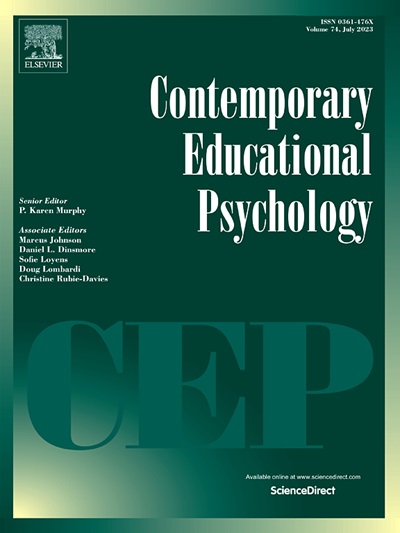消极反馈的艺术:神经教育的视角
IF 3.8
1区 心理学
Q1 PSYCHOLOGY, EDUCATIONAL
引用次数: 0
摘要
这篇综述从神经教育的角度对以往关于负反馈对学习和动机的影响的研究进行了全面的综合。总体目标是通过调整学习者的神经认知过程来优化从负面反馈中学习。我们探讨了负反馈在错误检测、情绪调节、认知控制和行为调整中的作用,整合了认知、发展、情感和动机神经科学的关键见解。在此过程中,我们研究了不同类型的负反馈如何激活不同的神经反应。神经教育文献表明,当负面反馈信息丰富,与掌握目标和成长心态一致,并在培养能力和兴趣的环境中传递时,负面反馈是最有效的。基于这些发现,我们提出了一个错误驱动的学习框架,该框架采用实用策略来提高学习者的能力,激发好奇心,促进观察学习,促进自我调节。通过创造一个学习环境,让学习者接受错误,完善他们的知识和技能,这个框架最终使他们在学习过程中成为能动性。本文章由计算机程序翻译,如有差异,请以英文原文为准。
The art of negative feedback: A neuroeducational perspective
This review provides a comprehensive synthesis of previous research on the impact of negative feedback on learning and motivation through a neuroeducational lens. The overarching goal is to optimize learning from negative feedback by aligning it with learners’ neurocognitive processes. We explore the role of negative feedback in error detection, emotion regulation, cognitive control, and behavioral adjustments, integrating key insights from cognitive, developmental, affective, and motivational neuroscience. In doing so, we examine how different types of negative feedback activate distinct neural responses. The neuroeducational literature suggests that negative feedback is most effective when it is informative, aligned with mastery goals and a growth mindset, and delivered in environments that foster competence and interest. Building on these findings, we propose an error-driven learning framework that employs practical strategies to enhance learners’ competence, spark curiosity, facilitate observational learning, and promote self-regulation. By creating a learning environment where learners embrace errors and refine their knowledge and skills, this framework ultimately empowers them to become agentic in their learning process.
求助全文
通过发布文献求助,成功后即可免费获取论文全文。
去求助
来源期刊

Contemporary Educational Psychology
PSYCHOLOGY, EDUCATIONAL-
CiteScore
16.50
自引率
3.90%
发文量
74
期刊介绍:
Contemporary Educational Psychology is a scholarly journal that publishes empirical research from various parts of the world. The research aims to substantially advance, extend, or re-envision the ongoing discourse in educational psychology research and practice. To be considered for publication, manuscripts must be well-grounded in a comprehensive theoretical and empirical framework. This framework should raise critical and timely questions that educational psychology currently faces. Additionally, the questions asked should be closely related to the chosen methodological approach, and the authors should provide actionable implications for education research and practice. The journal seeks to publish manuscripts that offer cutting-edge theoretical and methodological perspectives on critical and timely education questions.
The journal is abstracted and indexed in various databases, including Contents Pages in Education, Australian Educational Index, Current Contents, EBSCOhost, Education Index, ERA, PsycINFO, Sociology of Education Abstracts, PubMed/Medline, BIOSIS Previews, and others.
 求助内容:
求助内容: 应助结果提醒方式:
应助结果提醒方式:


